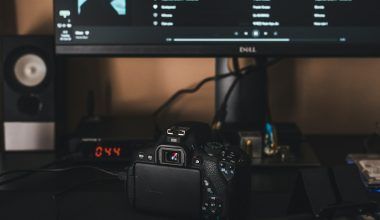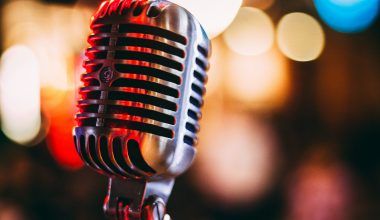Why Sound Quality Matters
Imagine listening to your favorite song. Every beat, lyric, and instrument feels alive, giving you goosebumps. That’s the power of great sound quality. But did you know the type of audio file you choose can make a big difference? Whether you’re a music fan, a budding artist, or someone creating a playlist, knowing the best audio format for sound quality can change how you experience music.
In this blog, we’ll break everything down in simple terms so anyone can understand and enjoy better sound. Let’s dive in!
What is an Audio Format?
An audio format is like a container that holds sound data. This container decides:
- How much of the original sound is preserved
- How much space the file takes on your device
Think of it like packing for a trip. Do you cram everything into a small bag (compressed files like MP3), or do you take a big suitcase to carry everything without squishing (lossless files like WAV or FLAC)?
Why Should You Care About Audio Formats?
Good sound quality makes music feel more immersive and enjoyable. The better the format, the clearer and richer your audio will sound. But it’s not just about quality. Some formats take up less storage, while others preserve every detail. Choosing the right format depends on your needs.
Lossless vs. Lossy: What Does It Mean?
To choose the best audio format for sound quality, you need to understand two terms: lossless and lossy.
Lossless Formats
- These keep all the sound details.
- The audio is crystal clear, just like the original recording.
- Examples: WAV, FLAC, AIFF
Lossy Formats
- These shrink file sizes by removing some sound data.
- You may not notice the loss unless you listen carefully.
- Examples: MP3, AAC
In short, lossless formats are like a full buffet, while lossy formats are a smaller plate with fewer options.
Breaking Down Popular Audio Formats
Let’s take a closer look at some of the most common audio formats and how they affect sound quality.
1. WAV (Waveform Audio File)
- Sound Quality: Excellent, studio-grade
- Size: Large
- Best For: Professionals, music producers, audiophiles WAV files keep everything from the original recording. If you want the best possible sound, this is a go-to choice. But remember, they’ll eat up a lot of storage!
2. FLAC (Free Lossless Audio Codec)
- Sound Quality: Fantastic
- Size: Smaller than WAV but still large
- Best For: Audiophiles, music collectors FLAC is perfect if you want great sound but also need to save space. It’s like having your cake and eating it too!
3. MP3 (MPEG Audio Layer III)
- Sound Quality: Decent to good (depending on bitrate)
- Size: Compact
- Best For: Everyday listening, casual music fans MP3 is popular because it’s small and works on almost every device. It’s not as detailed as WAV or FLAC, but for most people, it’s good enough.
4. AAC (Advanced Audio Coding)
- Sound Quality: Better than MP3 at the same file size
- Size: Compact
- Best For: Streaming platforms, Apple devices AAC is the format used by platforms like Apple Music. It balances quality and size better than MP3.
5. AIFF (Audio Interchange File Format)
- Sound Quality: Same as WAV
- Size: Large
- Best For: Mac users, professional editing AIFF is like WAV but designed for Apple users. If you’re using a Mac for audio editing, AIFF is worth considering.
6. ALAC (Apple Lossless Audio Codec)
- Sound Quality: Lossless, similar to FLAC
- Size: Smaller than WAV
- Best For: iPhone users, Apple Music ALAC is Apple’s answer to FLAC. It offers high-quality sound without eating up all your storage.
How to Choose the Best Audio Format for Sound Quality
Your choice of format depends on what you value most: quality, storage space, or compatibility.
If You Want the Best Quality:
- Go for WAV or FLAC. They preserve every detail of the sound.
If You Need to Save Space:
- Use MP3 or AAC. They’re small and still sound good for casual listening.
If You’re Archiving Music:
- Pick FLAC or ALAC. These formats keep the quality intact and save some space.
Why Not Just Always Use Lossless Formats?
You might wonder, “If lossless formats are so great, why doesn’t everyone use them?” The answer lies in storage and convenience. Lossless files take up a lot of space, which can be a problem if you have a lot of music or limited device storage. For example:
- A 3-minute MP3 might be 3-5 MB.
- The same song in WAV could be 30 MB or more!
This is why people often use lossy formats for everyday listening and lossless formats for professional or personal archives.
Tips to Get the Best Sound Quality
Want your music to sound amazing? Here are some simple tips:
- Use High-Quality Equipment: Invest in good headphones or speakers.
- Choose the Right Format: If space allows, go for FLAC or WAV.
- Avoid Repeated Conversions: Converting between formats can reduce quality.
- Download High-Resolution Files: Look for audio with a higher bitrate for better sound.
FAQs About Audio Formats
Q: Can I hear the difference between MP3 and FLAC? A: It depends on your ears, your equipment, and the music. On high-end gear, the difference is noticeable.
Q: Which format is best for streaming? A: AAC is the most common streaming format because it offers good quality in a small size.
Q: Are all MP3 files the same? A: No. The bitrate (e.g., 128 kbps vs. 320 kbps) affects the quality. Higher bitrates mean better sound.
Conclusion: Finding Your Perfect Audio Format
Choosing the right format is all about balance. Think about your needs, your device, and how you listen to music. Whatever you choose, enjoy the journey of discovering better sound!
Final Thoughts
Sound is an experience, and the format you choose can bring you closer to the music you love. Don’t be afraid to experiment with different formats to find what works best for you. After all, music is personal, and so is your choice of how to enjoy it.
If you’re an artist looking to master your tracks or distribute them across platforms, check out our AI Mastering Services and Music Distribution Services. Make your music sound its best and reach the right audience!
Related Articles:
For further reading, explore these related articles:
- How to Become a Successful Music Artist in India in 2024?
- Promo Cards on Spotify: A Game Changer for Artists
- Understanding ISRC Codes and Their Importance in Tracking and Distributing Your Music
For additional resources on music marketing and distribution, visit Deliver My Tune.






